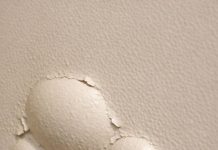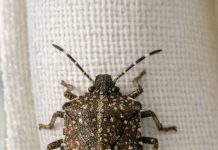Bedbugs are a nightmare for homeowners, often causing sleepless nights and endless frustration. These tiny, blood-sucking pests can quickly invade your home, hiding in the most unexpected places and multiplying rapidly. Once they establish themselves, bedbugs can be extremely difficult to eliminate. Many homeowners resort to chemical treatments and expensive extermination services, but natural remedies are gaining popularity as safer alternatives.
Among these, clove has emerged as a potential natural repellent. But how effective is it?
In this comprehensive guide, we will explore everything you need to know about bedbugs, including their life cycle, why they invade homes, and the signs of an infestation. Most importantly, we’ll discuss how you can use clove as a natural remedy to help drive these pests away and regain control of your home.
What Are Bedbugs and How Do They Live?
Bedbugs (Cimex lectularius) are small, flat, and reddish-brown insects that survive by feeding on the blood of humans and animals. Despite their tiny size, these pests can cause major discomfort through their bites and rapid reproduction. Understanding their habits and hiding places is key to effectively getting rid of them.
Appearance and Characteristics
- Adult bedbugs are about the size of an apple seed (4-5mm long).
- Their bodies are oval and flat, allowing them to squeeze into tiny crevices.
- After feeding, their bodies swell and turn a darker red.
- They do not have wings, meaning they crawl instead of fly.
Where Do Bedbugs Hide?
Bedbugs are experts at hiding and typically come out at night to feed. Their favorite hiding spots include:
- Mattress seams, box springs, and bed frames.
- Cracks in furniture, baseboards, and walls.
- Upholstered furniture and curtains.
- Behind picture frames, electrical outlets, and loose wallpaper.
How Do Bedbugs Survive?
Bedbugs are incredibly resilient pests that can survive under extreme conditions. Here’s how they manage to thrive:
- Diet: Bedbugs feed exclusively on blood, mainly from humans, but they can also bite animals.
- Lifespan: They can live for months without feeding, making them difficult to starve out.
- Reproduction: Female bedbugs lay 1-5 eggs daily, and these hatch within 7-10 days, leading to rapid infestations.
Signs of a Bedbug Infestation
Early detection is crucial to preventing a full-blown infestation. Some key signs to watch out for include:
- Bites: Bedbug bites appear as red, itchy welts, often in a line or cluster on exposed skin.
- Blood Stains: Small blood spots on sheets, pillowcases, and mattresses.
- Eggs and Shells: Tiny white eggs and shed skins around bed frames and other hiding spots.
- Unpleasant Odor: A strong, musty smell in infested areas caused by pheromones released by bedbugs.
If you notice any of these warning signs, it’s time to take action immediately.
How to Eradicate Bedbugs from Your Home
Eliminating bedbugs requires a multi-step approach. Here are some effective methods:
1. Deep Cleaning
- Wash all bedding, curtains, and clothing in hot water and dry them on the highest heat setting.
- Vacuum mattresses, furniture, carpets, and other potential hiding spots thoroughly.
2. Decluttering
- Remove unnecessary clutter like old furniture, newspapers, and piles of clothing where bedbugs can hide.
- Store items in sealed plastic containers to prevent reinfestation.
3. Sealing Cracks and Crevices
- Use caulk to seal cracks in walls, floors, and furniture to eliminate hiding spots.
- Repair or remove peeling wallpaper and tighten loose electrical outlet covers.
4. Professional Pest Control
Using Clove to Repel Bedbugs
Many homeowners are turning to natural remedies to combat bedbugs, and clove has been highlighted for its potential repellent properties. Clove contains eugenol, a compound known for its strong aroma and insecticidal effects. While clove may not kill bedbugs outright, it can help deter them from your living spaces.
How Does Clove Work Against Bedbugs?
- Strong Odor: The pungent scent of clove disrupts bedbugs’ ability to locate hosts and deters them from infested areas.
- Antimicrobial Properties: Clove oil has antibacterial and antifungal effects, which can help sanitize surfaces where bedbugs reside.
How to Use Clove for Bedbug Control
1. Clove Oil Spray
- Mix 10-15 drops of clove essential oil with 1 cup of water in a spray bottle.
- Add a few drops of dish soap to help the oil mix with water.
- Spray the solution on mattresses, bed frames, furniture, and other infested areas.
- Repeat daily until bedbug activity decreases.
2. Clove Sachets
- Place dried clove buds in small sachets.
- Tuck them into mattress seams, under cushions, or inside drawers.
- Replace sachets every few weeks to maintain effectiveness.
3. Combining Clove with Other Natural Remedies
For better results, combine clove oil with other essential oils known for their insect-repellent properties, such as:
- Tea Tree Oil: Has strong antimicrobial effects and helps deter pests.
- Lavender Oil: A soothing scent for humans but repellent to bedbugs.
- Peppermint Oil: The menthol in peppermint disrupts bedbug navigation.
Precautions When Using Clove
While clove is a natural solution, it should be used carefully:
- Avoid direct contact with clove oil on your skin, as it can cause irritation.
- Test the clove spray on a small, inconspicuous area to ensure it doesn’t damage fabrics or surfaces.
- Remember that clove is a temporary solution and may not be effective for severe infestations.
Conclusion :
Bedbugs are persistent pests that can wreak havoc on your home and well-being. Their ability to hide, reproduce rapidly, and survive without feeding makes them particularly challenging to eliminate. While professional extermination is often necessary for severe infestations, natural remedies like clove can play a role in bedbug prevention and management. Clove’s strong aroma, combined with its antimicrobial properties, can help repel bedbugs and reduce their presence in your home.
However, clove alone is not a magic cure. It should be used as part of a broader bedbug control strategy that includes deep cleaning, decluttering, sealing entry points, and—when necessary—seeking professional help. By staying vigilant and implementing these measures, you can protect your home and family from these unwanted invaders. If you suspect a bedbug problem, act fast—because the sooner you start, the easier it will be to reclaim your space from these persistent pests.










